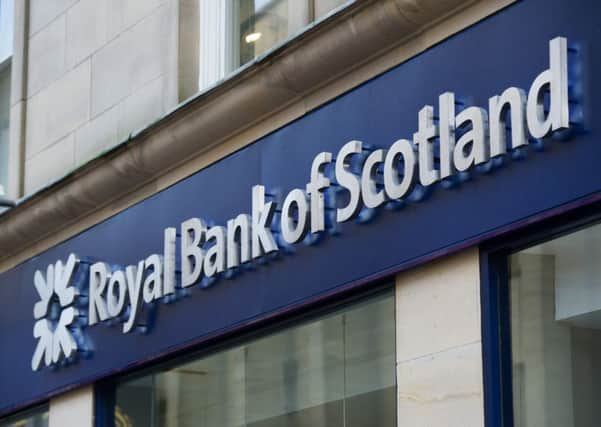RBS probe finds '˜insufficient evidence of criminal conduct'


Announcing the end of a four-year investigation, the Crown Office yesterday said it had found “insufficient evidence of criminal conduct” relating to the 2008 rights issue.
RBS asked shareholders to inject £12bn into the bank to strengthen its reserves after it paid nearly £50bn to acquire Dutch bank ABN Amro in a deal which is now regarded as a huge error of judgement.
Advertisement
Hide AdAdvertisement
Hide AdThe Edinburgh-based bank, which had grown massively under the leadership of Mr Goodwin, ended up needing a £45.5bn taxpayer-funded bailout in October 2008.
A report by the Financial Services Authority (FSA) in 2011 said that RBS had suffered from “multiple poor decisions” and a “£50bn gamble” on buying ABN Amro.
The report also highlighted issues with Mr Goodwin’s management style. The former chief executive was stripped of his knighthood in 2012.
In a statement, the Crown Office said: “The failure of RBS is an issue of great public concern. The Crown undertook a thorough, independent investigation following publication of the FSA (now FCA) report in December 2011.
Advertisement
Hide AdAdvertisement
Hide Ad“The Crown’s investigation focussed on the rights issue of April-June 2008, and involved detailed consideration of whether there was any evidence of criminal conduct associated with the rights issue. If there were such evidence those responsible would face prosecution. If not, the public in Scotland could be reassured that the matter had been properly investigated.”
The Crown said the investigation had been “extremely complex”, involving the examination of more than 160,000 documents by forensic accountants and banking experts.
The statement added: “The investigation involved close co-operation with a range of financial regulators and banking institutions, including the Financial Conduct Authority, the Prudential Regulation Authority, the Federal Reserve Bank of New York, the Serious Fraud Office and the Financial Reporting Council.
“Following careful examination of all the evidence seen to date, Crown counsel have decided that there is insufficient evidence in law of criminal conduct either in relation to RBS as an institution or any directors or other senior management involved in the rights issue.
Advertisement
Hide AdAdvertisement
Hide Ad“If any further evidence comes to light which is relevant to this inquiry it will be considered by the Crown and we reserve the right to make further inquiry, if considered appropriate.”
An RBS spokeswoman said: “We co-operated fully with this investigation and we note today’s decision.”
While the criminal investigation has ended, a £4bn civil action by shareholders who lost out during the rights issue is expected to reach the High Court in the coming months.
Mr Goodwin is among those named in the action, along with ex-chairman Tom McKillop and other former senior figures in the bank.
Advertisement
Hide AdAdvertisement
Hide AdRBS has handed over more than 600,000 documents, including e-mails and texts sent by Mr Goodwin and other directors, in the run-up to the trial. The bank’s legal fees have been estimated at £90 million.
Overseen by Mr Goodwin, the ABN Amro deal proved toxic. Just months later, RBS shares plunged 90 per cent and the UK government had to step in. RBS is still 73 per cent owned by the taxpayer.
Last year, UK Financial Investments, which holds the government’s RBS stake, began selling off its shares. It sold a 5.4 per cent stake at 330p a share, raising £2.1bn – a loss of about £1bn.